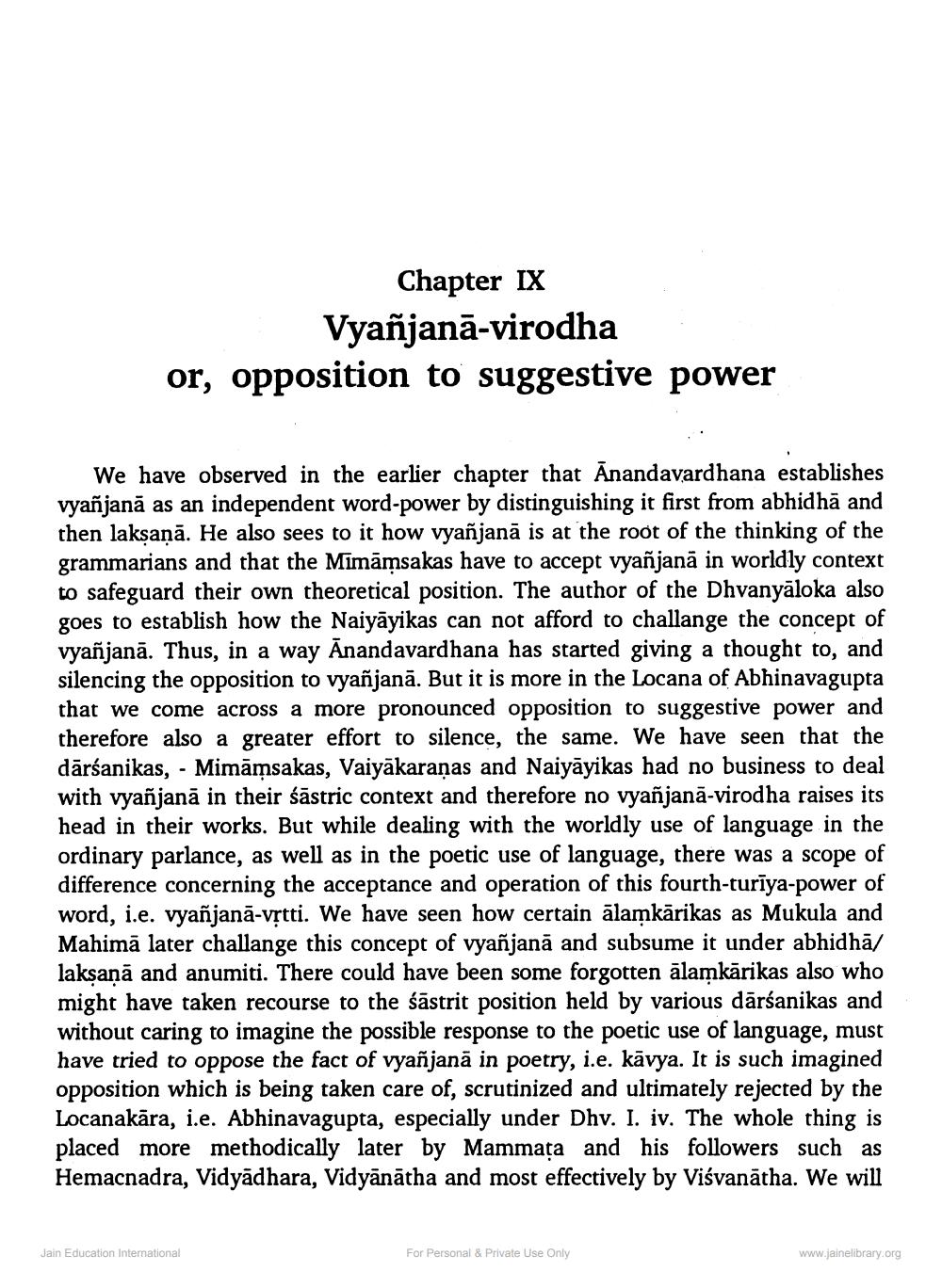________________
Chapter IX Vyañjana-virodha
or, opposition to suggestive power
We have observed in the earlier chapter that Anandavardhana establishes vyañjanā as an independent word-power by distinguishing it first from abhidha and then lakṣaṇā. He also sees to it how vyañjana is at the root of the thinking of the grammarians and that the Mimāmsakas have to accept vyañjanā in worldly context to safeguard their own theoretical position. The author of the Dhvanyaloka also goes to establish how the Naiyāyikas can not afford to challange the concept of vyañjanā. Thus, in a way Anandavardhana has started giving a thought to, and silencing the opposition to vyañjanā. But it is more in the Locana of Abhinavagupta that we come across a more pronounced opposition to suggestive power and therefore also a greater effort to silence, the same. We have seen that the dārśanikas, Mimāmsakas, Vaiyākaraṇas and Naiyāyikas had no business to deal with vyañjanā in their śastric context and therefore no vyañjana-virodha raises its head in their works. But while dealing with the worldly use of language in the ordinary parlance, as well as in the poetic use of language, there was a scope of difference concerning the acceptance and operation of this fourth-turīya-power of word, i.e. vyañjana-vṛtti. We have seen how certain alamkarikas as Mukula and Mahima later challange this concept of vyañjanā and subsume it under abhidhā/ lakṣaṇā and anumiti. There could have been some forgotten alamkarikas also who might have taken recourse to the śastrit position held by various dārśanikas and without caring to imagine the possible response to the poetic use of language, must have tried to oppose the fact of vyañjanā in poetry, i.e. kāvya. It is such imagined opposition which is being taken care of, scrutinized and ultimately rejected by the Locanakāra, i.e. Abhinavagupta, especially under Dhv. I. iv. The whole thing is placed more methodically later by Mammata and his followers such as Hemacnadra, Vidyādhara, Vidyānātha and most effectively by Viśvanatha. We will
-
Jain Education International
For Personal & Private Use Only
www.jainelibrary.org




